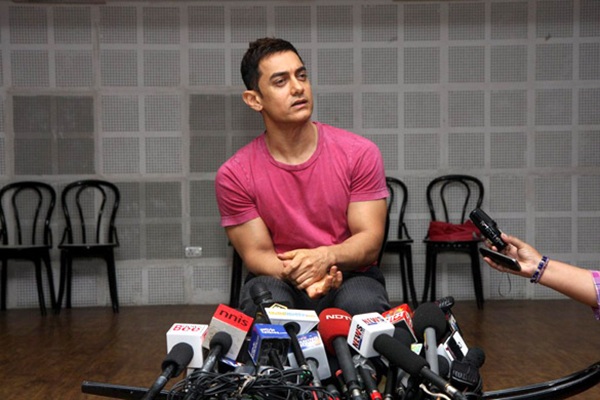.png)
Aamir Khan’s Humblebrag Trap: How Performative Modesty Erodes Brand Equity
Elites, stop playing pauper. Drop fake modesty. Own your privilege with values-driven vulnerability to build real brand equity.


Kirti Tarang Pande is a psychologist, researcher, and brand strategist specialising in the intersection of mental health, societal resilience, and organisational behaviour.
July 5, 2025 at 4:34 AM IST
"I’m not materialistic," Aamir Khan recently declared, while seated atop an estimated ₹18 billion fortune, owning a Rolls Royce, a Mercedes, a Bentley, a sea-facing mansion in Bandra, and a fortress in Los Angeles. What was intended as a moment of parental pride became a public relations misstep. But this wasn’t merely a celebrity gaffe; it’s a branding disaster, it's a HUMBLEBRAG CONTAGION rotting your trust capital while you sleep. Audiences detect the ‘modesty theater’ and penalise the brand with lower engagement. Today’s hyper-competitive landscape demands that the brands leverage a full spectrum of evidence-based psychological insights and craft brands that don’t alienate, but, they inspire, they addict.
The Psychology of Privilege Denial
(Cognitive dissonance -> Trust erosion)
Why do elites fall into this trap? Because in an age of staggering inequality, privilege feels like a moral liability, like the original sin. Public figures, terrified of pitchforks and callouts, scramble for moral alibis. Downplaying wealth (“My kid won’t buy cars!”) becomes a shield against nepotism backlash. In an era where privilege is more visible and more critiqued than ever, public figures often adopt performative humility to stay relatable. It rarely lands. Aamir’s attempt to position himself as "non-materialistic" while living a life of extreme wealth isn’t humility. It highlights a critical psychological conflict: when a person’s external narrative clashes with observable reality, it creates cognitive dissonance and identity fragmentation. This erodes trust of the audience and creates an emotional integrity debt for the individual.
This is not just a PR issue. It’s a psychological one as well. A fractured identity leads to anxiety, and isolation for the individual. For audiences, it breeds cynicism. It deepens the very divide that elites hope to bridge.
We’ve seen it play out repeatedly: New York’s mayoral candidate Zohran Mamdani, eating rice with his hands during a live interview or Ukrainian President Volodymyr Zelensky donning combat fatigues. Yet, as research suggests, audiences are quick to detect inauthenticity. The internet was swift to call out Mamdani, an Academy Award-nominated filmmaker’s son, for what many perceived as performative modesty. Similarly, Zelensky has faced criticism for his high-profile Vogue photoshoot in wartime Kyiv, with detractors questioning the optics of such carefully staged images during an ongoing conflict.
This is why romanticising austerity is no longer a harmless quirk. When billionaires preach simplicity while hosting ₹50-million weddings in designer khadi, they’re not connecting, they’re calcifying their brand. It’s not humility. It’s performative proletarianism.
Better Playbook
Audiences don’t want saints. They want emotional coherence. And they will reward authenticity over austerity optics. Recent research into trust and brand loyalty confirms: consistency is currency. Influence grows not when privilege is denied, but when it’s acknowledged and meaningfully redirected.
That was Aamir’s real misstep, not in talking about values, but in denying the reality in which those values were formed. “I’m not materialistic” didn’t just sound false. It sounded like virtue signalling. A trust-building reframe of it would be, “Success gifted us comfort, but I’m proud that Junaid seeks purpose over possessions. Watching him chart his own path tells me we’ve done something right as parents.” It would have struck a different chord. It would have been emotionally resonant. In a world hungry for authenticity over optics, this kind of narrative earns trust and sustains it.
This version acknowledges privilege without pretending it doesn’t exist. It centres values without denying reality. That’s the sweet spot.
This sweet spot is a trust-building template for public figures and corporate leaders alike. Authenticity, after all, isn’t about denying wealth, it’s about purposeful ownership and meaningful redirection. So, a better strategy is to own that access and show how it is used for good. Instead of performance, focus on purpose. Brands practising this radical ownership will enjoy higher trust capital; as they provide narrative coherence in a fractured world.
Audiences don’t expect perfection. They expect honesty. The most effective personal brands are not built on self-denial, but on self-awareness. Society doesn’t need billionaires playing paupers. It needs leaders who wield privilege with bone-deep integrity.
That’s what builds trust. That’s what builds staying power.
So,
Stop saying: “I’m just like you.”
Start saying: “My access comes with responsibility.”
Stop: Performative simplicity.
Start: Spotlighting how privilege creates opportunity (e.g., funding mental health initiatives).
And remember that VULNERABILITY > VIRTUE SIGNALING.
So stop saying: “I don’t care about money.”
Start sharing: “Here’s how wealth has complicated my relationships and what I’m learning.”
The world no longer rewards virtue signalling. It rewards vulnerability. Stand on your stage. Speak your truth. The mob respects strength more than fakery. Redirect your privilege. Build bridges, not facades.
Because when we stop performing and start aligning, we don’t just protect our brands. We nourish societal well-being, one honest conversation at a time.



